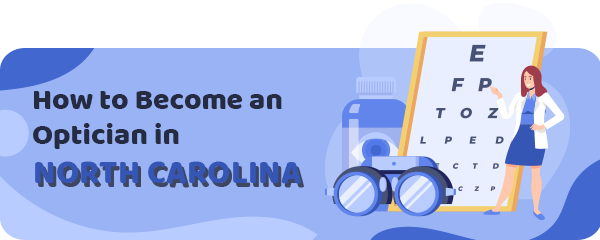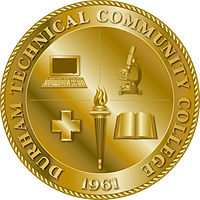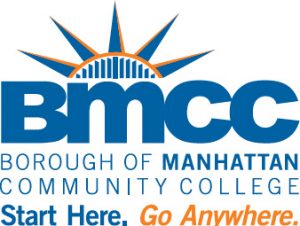
So, you decided you wanted to become an optician in North Carolina.
But what are the steps to take to accomplish your dream?
Have a look at the article below to gain knowledge, of the rules, and regulations in this state.
Remember that these professionals work with a variety of people from all walks of live.
Not everyone is fir for this kind of occupation.
Article Table of Contents
Optician Job Duties
Opticians assist customers in selecting suitable eyewear, however, there are other roles besides this.
Beyond aiding with eyewear choices, their duties encompass:
- Meticulously preparing eyewear
- Precisely fitting and adjusting eyewear for optimal comfort
- Providing comprehensive education to customers on eyewear issues and maintenance
- Maintaining meticulous sales records
- Skillfully determining insurance co-pays to facilitate customer transactions
- Managing and organizing inventory to ensure product availability
- Establishing effective communication with lens-manufacturing labs for seamless production processes
Despite their responsibilities, opticians are not authorized to conduct eye examinations or prescribe eyewear.
These are tasks performed by doctors of optometry.
Optician Training in North Carolina
Prospective opticians from North Carolina must undergo a training process and get a license.
The North Carolina State Board of Opticians oversees this process.
Durham Technical Community College 
This Community College extends two distinct diploma options:
- Certificate
- Associate’s degree
The Associate’s degree program spans a minimum of 2 years, providing a comprehensive educational experience.
Additionally, individuals have the flexibility to consider programs in optometry from out-of-state colleges.
However, accreditation scrutiny is imperative.
Enrolling in optometry programs demands meeting stringent criteria, including:
- Possession of a high school diploma or GED
- Successful completion of specific classes with a minimum grade of C
- Submission of two letters of recommendation
- Presentation of OAT scores (not older than 5 years)
- Maintaining a minimum GPA of 2.75
Engage in a diverse range of classes that enrich your optician education.
Some of these include:
- Introduction to Optometry
- Ocular Anatomy, Systems 1: Neuroscience
- Ocular Microbiology
- Ophthalmic Imaging
- Public Health Optometry
- Glaucoma
- Physics
As a part of your optician education, you must attend classes that provide hands-on experience.
Borough of Manhattan Community College 
This community college provides fully online classes with no fixed start dates, allowing candidates to enroll at any time.
While there are no specific enrollment requirements, having at least a high school diploma or GED is recommended.
The course covers various topics, including:
- Simple math and algebra
- Soft contact lenses
- Gas-permeable contact lenses
- Legal responsibilities and ethics
- The parts of the eye
- Refractive errors
- Strabismus and amblyopia
- Other common ocular conditions
- Prism basics
Regardless of the diploma earned, all aspiring opticians must partake in a Board-approved internship lasting a minimum of 6 months.
Indiana University 
Those who prefer a traditional classroom education can do so at Indiana University.
At this institution, students have the option of pursuing certificate programs in optometry science or the opticianry field.
These programs usually take up to 2 years to complete.
The tuition for the first year of the optometry program is approximately $34,194 for residents, excluding books, supplies, or living expenses.
Non-residents of the state are required to pay around $47,000.
Additionally, books and clinic equipment incur an additional cost of approximately $7,000 for both residents and non-residents.
School Name
Address
Borough of Manhattan Community College
online
Indiana University
Indiana
Durham Technical Community College
1637 E Lawson St, Durham, NC 27703,
Certification or Licensure for an Optician in North Carolina
After you finish your training, you become eligible for licensure.
This process occurs bi-annually and entails certification exams.
The Board outlines the necessary documents for licensure on its official website.
Many individuals choose to take the National Opticianry Competency Examination (NOCE) facilitated by the ABO.
The NOCE has three levels:
- Beginner
- Intermediate
- and Advanced
Usually, candidates start with the foundational Beginner level.
This level covers essential subjects such as:
- Reading prescriptions
- Fitting and dispensing spectacles
- Utilizing standard ophthalmic equipment
If you are looking to work with both glasses and contact lenses, you need to pass the Contact Lens Registry Examination (CLRE), administered by the National Contact Lens Examiners.
Like the NOCE, the CLRE features three levels of difficulty.
It includes subjects like:
- Pre-fitting for lenses
- Diagnostic fitting
- Dispensing of lenses
- Patient Education
- Delivery
- Follow-up.
The combined cost for both tests amounts to $400 and can be paid by the company you work for.
Optician Certification Renewal
The certifications expire every three years.
For your license to be renewed, you need to take some extra hours of education.
Optician Salary in North Carolina
In North Carolina, opticians can anticipate a minimum annual salary of about $50,900.
For those aiming higher, the average maximum salary for opticians in the state reaches 53,100 annually.
Of course, your earnings depend on several factors such as your level of experience and location.
Annual Salary Range:
Location
Avg. Annual Salary
Alexis
$52,100
Cary
$51,700
Bellarthur
$51,400
Whitakers
$51,400
Battleboro
$51,400
Carrboro
$51,100
Colfax
$50,900
Belews Creek
$50,800
Cedar Falls
$50,600
Alamance
$50,500
Regional Salary in North Carolina
Region
Employed
Avg. Annual Salary
Avg. Hourly Pay
Top 10% Annual Salary
Bottom 10% Annual Salary
Asheville, NC 110 $45,640 $21.94 $68,010 $29,400 Burlington, NC 40 $45,510 $21.88 $68,640 $28,560 Charlotte-Concord-Gastonia, NC-SC 560 $48,520 $23.33 $70,860 $30,310 Durham-Chapel Hill, NC 90 $54,650 $26.27 $73,650 $33,270 Fayetteville, NC 70 $45,590 $21.92 $68,990 $29,130 Goldsboro, NC 30 $48,080 $23.12 $76,250 $29,310 Greensboro-High Point, NC 130 $48,440 $23.29 $70,860 $29,420 Greenville, NC 30 $40,770 $19.6 $62,810 $24,330 Hickory-Lenoir-Morganton, NC 50 $51,720 $24.86 $77,780 $28,230 Jacksonville, NC 30 $47,590 $22.88 $72,800 $27,210 Raleigh, NC 340 $47,370 $22.78 $70,480 $30,050 Rocky Mount, NC 100 $38,690 $18.6 $56,870 $28,260 Wilmington, NC 80 $49,640 $23.87 $71,240 $29,230 Winston-Salem, NC 140 $43,670 $21 $68,340 $29,260
* Employment conditions in your area may vary.
Frequently Asked Questions
How can I stay updated on changes to the regulations regarding opticians in North Carolina?
The following organizations can offer further help especially when it comes to finding a job:
- American Board of Opticianry (ABO) and National Contact Lens Examiners (NCLE)
- North Carolina Opticians Association
- Commission on Opticianry Accreditation
- North Carolina Optometric Society
- North Carolina State Board of Opticians
What are the skills needed by an optician in North Carolina?
Employers, in addition to the necessary qualifications, also seek individuals who:
- Attention to details
- Good communication skills
- Adaptable to new situations
- Business skills
- Physical stamina
- Ability to perform repetitive tasks
Where can I find work as an optician in North Carolina?
When embarking on your job search, consider exploring opportunities in the following settings:
- Retail Stores
- Professional Offices
- Optometry Practices
- Hospital Environments
- Clinics
Read the full guide: How to Become an Optician